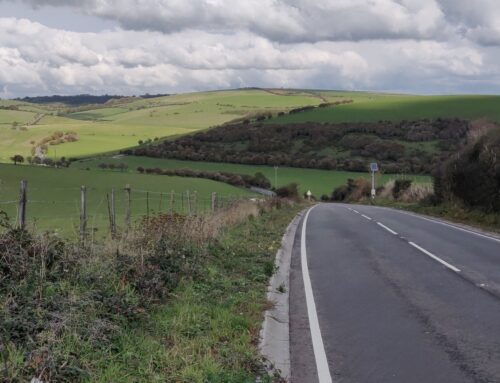It’s not because they don’t need it, or because giving small bits of cash doesn’t deal with the problem of poverty. It’s not because I worry it will be spent on drugs or alcohol. It’s not because I believe the state should be tackling the problem through taxation (which of course it should). None of these.
It’s something much more basic.
I find it physically hard to pause, get out my purse, find a couple of quid and put it in the paper cup.
So much so that it’s not unusual for me to pass a homeless person and walk on, as if they were invisible. For the next few minutes, I will agonise about how I wish I’d given some money, think about turning back, my mind tumbling over all the justifications for not having done so (see above), think about turning back again, wonder if I can just forget about it, think about turning back again, attempt to distract myself with something else, get my purse out, find a couple of quid, before finally walking over and putting it in the cup.
It’s a sort of agony of shame and indecision which doesn’t seem to improve however many times it happens. I have a policy now to have a certain amount of cash in my back pocket every time I’m out which I’ll give to one homeless person and that’ll be that. Shame and indecision gone. Problem solved.
Except the problem isn’t solved. I still find it hard. I think I’ve worked out what it is. The problem is the interaction. I have to make contact.
Do I? Could I drop a couple of coins in a homeless person’s cup without catching their eye and saying something? I suppose so, but it makes me feel less than human. It reinforces the part of the dynamic that is so uncomfortable and wrong. It emphasises the truth that I am lucky and this other person isn’t and that life is incredibly unfair. I don’t treat shop assistants, or bus drivers or ticket sellers like that. So why would I pretend someone to whom I was giving something doesn’t exist?
I have to say something, smile, show some level of interaction, be curious, at some atomic level, about the person. It’s small, this thing that seems so necessary. It’s hello, how are you? And that’s the trouble. How can this sort of small talk match up with the condition of being homeless on the streets of Britain in winter, when the true answer to how are you will cause me to feel anxious, guilty, outraged and powerless?
Now I understand why I find giving to a homeless person so difficult. I don’t want to give money to a homeless person because I’ll be forced to ask them how they are and I’ll feel uncomfortable at their answer. In other words, I don’t like giving money to a homeless person because I don’t like to be reminded how wretched that life must be. I don’t want to help that life be slightly more bearable because I don’t want to think about how bad it is. Yep, absurd.
So I have a new policy. I will stop thinking about my shame, my guilt, my powerlessness. The coins or notes in my pocket are merely a vehicle to ensure I make a connection. That’s what I’d want, if it was me on the streets.




![Now we are [nearly] six[ty]](https://penelopeoverton.com/wp-content/uploads/2018/09/Penel-website-photos-15-500x383.jpg)
